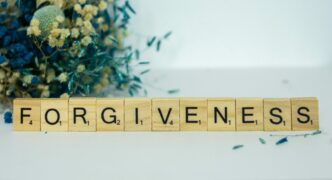Welcome to the fourth article in our series on situational awareness to protect children. Following our discussion on safe online practices, this article will emphasize the importance of open communication between parents, guardians, and children. Effective communication is a cornerstone in preventing grooming and other forms of exploitation.
Importance of Open Communication
Open communication creates a foundation of trust and security, enabling children to share their experiences and concerns without fear of judgment or punishment. This transparency is crucial in identifying and addressing potential threats early.
Open Communication: Building Trust with Children
To foster open communication, parents and guardians must build a trusting relationship with their children. This involves active listening, validating their feelings, and being approachable. When children feel heard and respected, they are more likely to disclose uncomfortable or suspicious encounters.
Practical Tips
- Be Present: Spend quality time with your children, showing them that you are available and interested in their lives.
- Validate Feelings: Acknowledge your child’s feelings and experiences, even if they seem trivial to you.
- Active Listening: Practice active listening by giving your full attention, making eye contact, and not interrupting.
Open Communication: Discussing Difficult Topics
It is essential to have age-appropriate discussions about difficult topics, such as online safety, inappropriate behavior, and grooming. Use clear and simple language to explain these concepts, ensuring that children understand the importance of staying vigilant and reporting any concerning interactions.
Practical Tips
- Use Age-Appropriate Language: Tailor your discussions to your child’s age and understanding level.
- Regular Conversations: Make these discussions a regular part of your interactions, not just a one-time talk.
- Create Safe Words: Establish a safe word or phrase that your child can use to alert you to uncomfortable situations.
Open Communication: Encouraging Regular Check-ins
Regular check-ins can help maintain an open line of communication. Set aside dedicated time to talk with your children about their day, their online interactions, and any concerns they might have. This routine can help normalize these discussions and make children feel more comfortable sharing their experiences.
Practical Tips
- Scheduled Time: Set a regular time each week for family check-ins to discuss everyone’s experiences and feelings.
- Open-Ended Questions: Ask open-ended questions that encourage your child to share more than yes or no answers.
- Non-Judgmental Environment: Create an environment where your child feels safe expressing their thoughts and concerns without fear of judgment.
Conclusion
Open communication is a powerful tool in protecting children from grooming and other dangers. Stay tuned for the next article, which will explore how to identify unsafe environments. By maintaining open dialogue and building trust, we can better safeguard our children.
Resources and Support Systems
- National Center for Missing & Exploited Children (NCMEC) – missingkids.org, 1-800-THE-LOST (1-800-843-5678)
- Rape, Abuse & Incest National Network (RAINN) – rainn.org, 1-800-656-HOPE (1-800-656-4673)
- Stop It Now! – stopitnow.org, 1-888-PREVENT (1-888-773-8368)
- Darkness to Light – d2l.org, 1-866-FOR-LIGHT (1-866-367-5444)
- Childhelp National Child Abuse Hotline – 1-800-4-A-CHILD (1-800-422-4453)
- CyberTipline – cybertipline.com, 1-800-THE-LOST (1-800-843-5678)
- National Human Trafficking Hotline – 1-888-373-7888
- Safe to Compete – safecompete.org
Unapologetically for the children™


